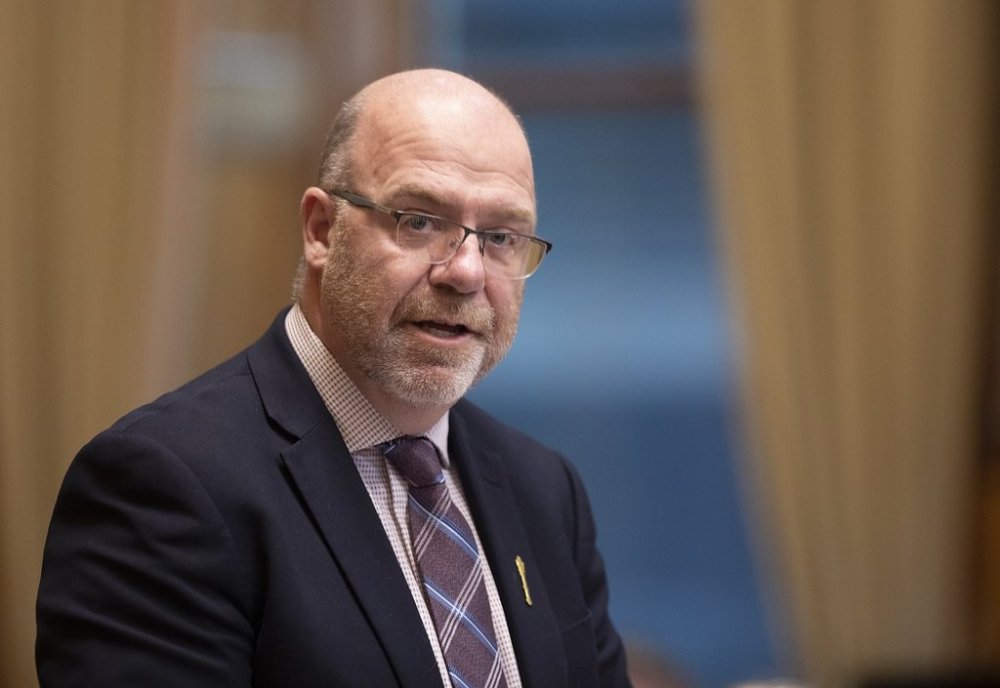New Brunswick ends fiscal year with $104.4-million deficit as health-care costs rise
Advertisement
Read this article for free:
or
Already have an account? Log in here »
To continue reading, please subscribe:
Monthly Digital Subscription
$1 per week for 24 weeks*
- Enjoy unlimited reading on winnipegfreepress.com
- Read the E-Edition, our digital replica newspaper
- Access News Break, our award-winning app
- Play interactive puzzles
*Billed as $4.00 plus GST every four weeks. After 24 weeks, price increases to the regular rate of $19.00 plus GST every four weeks. Offer available to new and qualified returning subscribers only. Cancel any time.
Monthly Digital Subscription
$4.75/week*
- Enjoy unlimited reading on winnipegfreepress.com
- Read the E-Edition, our digital replica newspaper
- Access News Break, our award-winning app
- Play interactive puzzles
*Billed as $19 plus GST every four weeks. Cancel any time.
To continue reading, please subscribe:
Add Winnipeg Free Press access to your Brandon Sun subscription for only
$1 for the first 4 weeks*
*$1 will be added to your next bill. After your 4 weeks access is complete your rate will increase by $0.00 a X percent off the regular rate.
Read unlimited articles for free today:
or
Already have an account? Log in here »
FREDERICTON – New Brunswick’s finance minister says the province finished the 2024-25 fiscal year with a $104.4-million deficit, instead of the $40.9-million surplus they had budgeted for.
René Legacy said the province’s net debt rose to $12.3 billion, from $11.8 billion. That’s roughly $14,400 per New Brunswick resident.
However, he said those figures aren’t entirely negative, as the province’s net debt-to-GDP ratio went down, meaning the economy grew faster than the debt.

“Our ability to manage our debt is actually stronger now for last year’s results than it was the year before,” said Legacy.
Legacy released the numbers Monday, noting that the province spent $416.9 million more than it budgeted. Legacy said this overage was largely due to increased costs in health care and social programs, which were $337 million and $96 million over budget, respectively.
“Every year, health-care spending is our biggest part of the spending. I would say that the variability and the uncertainty is going to continue because we have an aging population,” said Legacy. “The big hope that I have is that we will continue to grow as an economy, and the (health-care costs) get smaller with our growth and not just by cutting or trying to restrict.”
The province said there were increased costs for things like personnel at the regional health authorities, a large spend on travel nurses in the first quarter of the year, and an increased demand for out-of-province health care.
The government also brought in $156 million this year as part of a $32.5-billion settlement from three major tobacco companies that were ordered to pay up as part of a lawsuit seeking to recoup smoking-related health-care costs.
The settlement was announced in March, when an Ontario judge ordered JTI-Macdonald Corp., Rothmans, Benson & Hedges and Imperial Tobacco to pay compensation to provinces and territories, as well as plaintiff in two class-action lawsuits.
New Brunswick received $156 million from the settlement this year, but Legacy said they expect to receive $596 million in total over the life of the agreement. The rest of the money will come in future years, but it’s uncertain how much the provinces will receive and when – the payment schedule is based on the profitability of the tobacco companies.
“(The payment) is over several years. It could be a couple of decades as we get these payments in,” said Shauna Woodside, the director of accounting services with the department.
That’s why, Legacy said, they can’t commit any future payments to any future budgets at this time.
“There is a significant amount of illegal cigarettes in New Brunswick compared to other provinces, so that does impact profitability,” said Legacy. “Our comptroller felt better to not account for all of (the payment) up front, because we would have had to, every year, significantly adjust, for the next 20, 30 years.”
The government decided to put the money towards general government revenues, as opposed to earmarking it for anti-smoking programs or tobacco-related health-care costs, as was suggested by anti-smoking advocates.
The minister also noted that HST revenue was also about $70 million lower than originally projected, in part due to the federal government’s HST break from December 2024 through February of this year.
Legacy said discussions with Ottawa regarding HST revenue are ongoing.
This report by The Canadian Press was first published Sept. 29, 2025.

